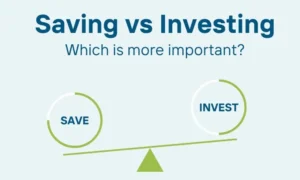With the wilting economy, more and more Kenyans are struggling to put food on the table and spare their families from dire times as no one has been spared from the financial pandemic. By dint of this, being able to afford the basic necessities is now perceived as a privilege.
More than ever, there is an increased need to set up financial boundaries, as Kenyans are exceedingly burdened with offering a helping hand to their extended loved ones and “close acquaintances” due to the desperation the normal mwananchi is forced to topple with.
Money is a taboo topic particularly when it comes to friends and family that are close to us and setting financial boundaries will definitely feel like you are pushing your luck. However, though very sensitive, the areas of financial boundaries must be addressed, otherwise, the related issues that stir you to a rollback will keep emerging and if left unattended, could render all your effort to meet financial goals hopeless.
As a matter of fact, it is proven that lack of financial boundaries is one of the reasons that people get into debt and become inadequately invested.
So, what is a boundary and how do you set financial boundaries that will benefit you without battering your relationships?
A boundary, defines who you are, where you end and where others begin. When you know what you are for and against and what you want and what you do not want you are setting boundaries. You should be able to make decisions around your money and stick to them without fearing the consequences.
When setting up financial boundaries, it is also important to realize that ‘No’ is a complete sentence and the use of no is very important. Having this in mind a forehand will help you get ahead of situations that would otherwise compromise your boundaries.
Read: Budgeting as a Self-Awareness Tool
Moreover, it is very important to think about areas where you do not have financial boundaries. For instance;
Financial Boundaries: Are you enabling any financial irresponsibility?
For example, your sibling or relative always calls you for money and you just give the money to them without establishing why they are borrowing or if they really need the money.
It could be an emergency, but it could also be that they don’t want to work and the money you give enables them to do the many things they need to do without requiring an alternative means of livelihood.
Enabling negative behavior can have a severe impact on your finances. In fact, it not only batters your finances, but also reduces your dependent’s ability to become financially responsible. Some beneficiaries if prompted admit that they could have been further along in their finances had they not been spoilt by their enablers and eventually pass the blame of their acquired irresponsibility to the financer.
If you are enabling financial irresponsibility, find other ways that you can handle these people and set up financial boundaries that will not only benefit you, but be a great benefit for them long term.
Do you fear being hated or rejected for saying no to people because of financial irresponsibility?
A lot of people don’t have boundaries for fear of being written off and delisted.
However, when dealing with this, it is important to think about the fact that maturity occurs when people learn their lessons through experience. Therefore, it is important to allow your beneficiaries to master how to better care for their finances.
When people enable their children, spouses or anyone else to remain irresponsible by always bailing them out, they interrupt their ability to make better financial decisions that would be beneficial to them long term and jeopardize their own financial security.
For most people, lack of financial boundaries pushes them to the wall and causes them to take drastic measures. One sufferer commented on the same. This is what they had to say;
“Dealing with my relatives was my weakness but I learned how to deal with them as I would my friends. I don’t lend to friends for purposes that are not life-threatening. If I have to lend my friends money and they were in a bad financial situation, I would ask myself two questions:
What are their debt repayment habits?
Is it money I am prepared to lose?”
This is a great yardstick to use before any lending and it would be beneficial to borrow that approach. Therefore, if your finances have been interrupted by your own enabling, you need to have the heart to stop it today and start with a change of mindset. This is the way to truly show love to irresponsible borrowers that are not genuine.
Consider Joka’s story below: –
“I was in a work meeting when my uncle, Orwa called me. Because he doesn’t call me as often, I thought whatever he wanted to say might be important. Perhaps there was an emergency. There was, at least that’s what he said. “My wife has been rushed to hospital. I urgently need five thousand, my son. I will refund as soon as I’m paid for my sugarcane sales,” he said.
Though I didn’t have the money ready, I asked a friend to send them the money and I had to go to an ATM after work to refund the friend. After one and a half months, I called uncle Orwa to ask about the progress and if he was ready to pay me back.
“Which money?” He asked. I was so shocked that I hung up on him. “These children have no respect for elders anymore. Joka just gave me Ksh.5,000 and now he’s telling everyone that he gave me money.”
He later complained to my parents who asked that I let the matter rest to maintain peace in the family. I never asked for the money back again, though it had a dent on my finances.”
What would you have done if you were in Joka’s situation?
Lending money to family and particularly close family members is a difficult decision. It borders on love, respect, care and concern. You’re at risk of being termed cold if you turn down such requests. You cannot hide your good fortune from family and many want to easily associate themselves with good fortune.
In some scenarios, whether you give or not, you are judged in some way. Most people find themselves in a situation where, the money they pay is not refunded or the money they give is termed too little.
Some people have alternated to owning a lot fewer physical assets so that people do not think that they own a lot. In most areas, a drive upcountry is enough for you to be viewed differently. Some people also lend less than requested in order to curb borrowing in future.
Another challenge that comes with financial situations is the cultural baggage that crowns financial issues. This is why it is always important to have a conversation and be open to family members about the consequences of not refunding borrowed money so that the relationship is also not ruined in the process.
For some, financial wellness is measured by physical position and because of that, most parents or relatives do not understand the financial requirement in their children’s individual lives – as long as they see that you live in a big house and drive a big car, most parents don’t fully understand the need to invest in things like money market shares etc. and sometimes it’s important to take a step ahead with them and explain the importance of your financial decisions and educate them.
It is important to begin to have conversations in order to retain relationships.
Was it right and just for Joka to let the matter rest? And why? Would you have forgiven your uncle or would you have contested?
It is also worth noting that our own parents can become enablers of financial irresponsibility. This is so, especially when they are worried about what others might say about them when they are asked to seek your help financially. This is why it’s important to have conversations with your parents and let them know the direction you are taking financially so that they are able to defend your decisions and boundaries.
Owing to this, what are some of the ways to approach select areas in your relationships in order to maintain your boundaries?
Marriage and Money
Do you know your spouse’s money personality? This is a particularly big step that establishes the boundaries that you will be required to have in your family and future marriage life. A lot of marriages end in conflict due to the financial boundaries that are established.
Is your spouse a saver, a big spender, a builder or a giver? Regardless of their money personality type, it is important to have honest and open discussions centered around money. Have discussions about budgeting… and budget together and become consistent about such practices. Be proactive and come up with formulas that make sure financial decisions are made wisely in the household that are both short term and long term. As you will spend the rest of your life with this person, come up with money formulas that work and will be able to endure future circumstances.
For marriages today, it is advisable to:
- Go to a financial literacy class so that you are on the same page,
- Share common responsibilities,
- Contribute towards saving and investments and
- Maintain individual bank accounts
After the above are taken into consideration, couples are then advised to spend the rest of the money as they please.
Below are three common strategies that are taken to maintain financial boundaries in the home;
1. Budget of family expenses using a formula for sharing expenses of the house i.e. by separating expenses between spouses.
2. Checking the expenses of the house and apportioning the expenses based on how much each spouse brings to the table. In this case, the party that earns more in the family contributes more to the household expenses in an apportioned approach.
3. Couples take money to a family pot and each takes out a portion where no questions are asked on the spending over and above meeting the usual expenses that are made from the family kitty required for the family. This enables private expenses and requirements therein to be met.
P.S. Without money harmony in the family, there will be family disharmony.
Children and money.
What experiences have you given your children on money? Are you a good role model? When you go for shopping do you carry a list so that they see you striking off a list? Though dismal, these are habits that children carry with them and if this becomes your habit, it is very unlikely that your child will scream at you at the counter when they see something that they want.
It’s very important to be a great role model to your children. What does your lifestyle teach your children about money? Do you do price comparisons? Are you an impulse buyer? Do you have discussions with your children about money? From what age?

Whether you know it or not, children watch the way you conduct yourself. Children watch what you do more than what you say.
A very good way of creating boundaries with your children is having financial discussions with them. Don’t underestimate the ability of your children to understand the importance of financial discussions.
A child understands what money is from a very early age therefore it’s important to have discussion around money from a very early age.
Dealing with parents.
Some people can go to great lengths for their parents to gift them but parents also have a way of coercing their children to get them the things that they like or want especially if they see other children do the same things for their parents. Should you support your parents?
Whether you should support your parents or not is a very personal decision. You should not be coerced to support your parents particularly in a way that tears down your financial acuity.
In addition to this, some parents will ask for assistance and others may never ask for assistance. For this reason, it’s a personal decision and different cases apply on each family set up.
To what extent should you support them and for how long?

A lot of people don’t realize that even the financial support you give your parents should have a limit. Some people find themselves unable to get through with their financial goals and end up using what they set aside for investment to support their parents.
In lieu of this, you should let your parents know what you aim to do and intentionally have conversations around your goals with them so that they know that a huge portion of your income is being used in another way. This prevents them from misunderstanding your spending abilities.
Also, negotiate during difficult times and let them know that you are being faced with a financial hitch. Communication eases your way to adjustment that may be beneficial for your financial security and will also go a long way to maintain a solid relationship.
Should you get support from your parents? This is a factor that causes friction in marriages where a spouse gets support from their parent as it causes the other party to become very uncomfortable. It depends on a case to case but in the event it causes friction, a discussion needs to be had and especially if there are strings attached.
Dealing with siblings
Siblings have a way of making us feel guilty. They remind you of many things or know which strings to pull to easily gain control over you as they know you too well. Therefore, it is important to set boundaries when dealing with siblings.
How you have generally dealt with boundaries in your family set up? How have you dealt with friction between you and your sibling in the past? Have you quarreled over a past issue that caused friction leading to a breakup of the relationship? If so how was it dealt with? Even when dealing with siblings and money, ask yourself, would you partner with them in business? Why and why not? What is your relationship when it comes to money?
Friendships and money
To what extent would you lend or borrow to a friend?
What are the possible consequences of not paying a debt by either party when you give money? Would involving money lead to a damaged relationship and are you willing to deal with that situation? You need to ask yourself critical questions using no as an answer in order to engage your friend financially.
Setting boundaries is no easy feat;

It is important to remember that when you set your boundaries you may or may not receive backlash or even alienation. Most people won’t appreciate that you are giving conditions once you communicate your new way of handling your money and thereby the inability to be manipulated.
When people around you discover they cannot control you anymore, they will find a different way to relate, but as long as they can control you with their anger, emotional blackmail or other forms of control, they will not change. Some people may delist you and some may respect you.
With the importance of financial boundaries in mind, here are a few practical steps that you can take on your way to making financial boundaries;
Draw boundaries and set your limits and goals
Know the amount you are willing to lose
Know the person you are lending to
Communicate clearly and respectfully to those whom boundaries are meant to affect (it is better to communicate in person)
Be assertive in your boundaries and keep reminding them





